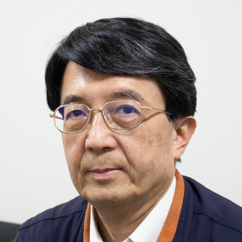Japan’s labor laws do not anticipate foreign workers or Japanese working abroad
Among advanced countries, Japan is the only one without immigration laws. While many countries have established immigration laws to accept immigrants under certain systems, Japan lacks such a framework. During the period of bubble economy in the late 1980s, numerous foreigners came to Japan for employment purposes. However, the Japanese government has long adhered to a seemingly restrictive policy on labor-based immigration. Consequently, at one point, around one million foreign workers entered and settled in Japan annually through various routes such as utilizing tourist or study visas instead of work visas. Long-term employment naturally made foreign workers want to bring their family members to Japan. However, since these family members had no choice but to enter Japan by unofficial means and were considered unrecognized, discrimination against them was exacerbated.
There is an aversion to accepting foreign workers because they may cause disruptions that threaten domestic security. However, the necessity of relying on their labor force cannot be ignored. A skewed response such as inviting them as technical intern trainees first further exacerbated the discriminatory structure. As a result, incidents involving technical intern trainees from Vietnam and other countries came to light. Reports revealed their inhumane conditions, including abuse, forced labor, and non-payment of minimum wages. This eventually prompted a change. At that point, nearly 30 years had passed since the inception of the technical intern trainee program.
Immigration has effectively continued to increase. Improving the environment for foreign workers is an urgent challenge that must be resolved. Similarly, various issues have arisen in the case of Japanese working abroad. For instance, when it comes to overtime pay, the Japanese law provides that working more than eight hours a day requires payment at a premium rate of at least 1.25 times the regular wage. However, if this provision is violated during an overseas business trip and a complaint is filed, labor standards inspectors cannot intervene as the violation occurred outside Japanese sovereign territory.
There has been a case where a legal dispute arose over industrial accident insurance coverage after a person died from overwork while working abroad. There has also been a case where collective bargaining with a labor union established in a foreign factory was refused by the Japanese headquarters. While the Labor Union Act of Japan provides that employers must not refuse to engage in collective bargaining without legitimate grounds, it does not explicitly address whether labor unions formed abroad should be recognized. While economy-related rules are formulated with international transactions in mind from the beginning, labor-related laws were not designed with such situations in mind. In other words, labor-related laws have gradually become less effective.
With labor unions not functioning effectively at present, the legalization of labor representation organizations has become crucial
A labor union is an organization that even just two new employees can create with relative ease if they want to. Despite their easy formation, labor unions enjoy various privileges, including protection for negotiations with company presidents under the Labor Union Act. However, in Japan, the union membership rate has been steadily declining. While it peaked at 55.9% in 1949, the estimated union membership rate in 2022 was a record low of 16.5%. Japanese labor unions are hardly functioning anymore, and strikes, which have become a global concern, are almost non-existent in Japan.
Japan is unique in that labor unions are integrated into companies. Because labor unions have already been incorporated into corporate systems, they prioritize corporate profits and choose not to fight even when workers face severe conditions. In this state, it is difficult to act in the common interest of workers. In contrast, labor unions in other countries are typically independent of companies and are organized by industry. Regardless of which company employs workers, labor unions engage in dialogue with employer associations to discuss and strive for improvement in labor conditions for workers in their industry.
However, this approach alone cannot adequately address specific issues unique to each company or workplace. In Europe, a system has been established where, in addition to labor unions, organizations representing workers are legally established. They are organized at the level of individual company workplaces. For instance, in Germany, elected representatives engage in discussions with their employers to determine the treatment of workers specific to their respective workplaces.
Unlike labor unions, these labor representation organizations are prohibited from conducting strikes. Instead, they have the right to discuss and decide on matters, including those in which labor unions cannot intervene, with employers.
Failure to acquire an international mindset directly impacts labor issues
The enactment of a labor representation system that requires the establishment of labor representation organizations carries significant implications for improving Japan’s working environment. However, there are concerns that since Japanese labor unions are organized at the company level, labor representation organizations within companies may not be distinct from labor unions. But is that true?
Since the presence of labor unions is undesirable for companies, it is rare to find companies that actively inform their employees about the significance and role of labor unions. Furthermore, criticism is often directed at existing labor unions, accusing them of collecting high union fees without providing any tangible benefits. Realistically speaking, labor units that can be voluntarily established do not function well. If the establishment of labor unions is mandated by a system, companies will be compelled to raise awareness, and the Ministry of Health, Labour and Welfare as well as labor bureaus will have the authority to provide guidance to companies with insufficient compliance.
In fact, proposals regarding a labor representation system have surfaced multiple times in Japan. Drafts incorporating comments from scholars have also been presented by various institutions. In order to enact such a system, it is necessary to consult with the Labor Policy Council, which consists of representatives of public interests, workers, and employers. But so far, these three parties have not achieved a consensus. However, Japan’s wages currently rank the lowest among the advanced G7 countries and fall below the average among the OECD’s 38 countries. Given this situation, it is becoming a shared understanding that a labor representation system is necessary to uplift the economy, and in recent years, the idea of introducing the system has gained momentum.
Labor representation organizations, where workers jointly protect their interests, are expected to play a crucial role in facilitating the gradual internationalization of Japan’s labor market. For instance, it can be quite stressful for an individual to accept people from different countries and advance operations while ensuring smooth communication with them. For example, when an Islamic employee expresses a desire to pray facing Mecca during working hours, it is difficult for an employer to determine how to address the desire. With permanent, properly functioning labor representation organizations, relationships with foreign workers will be built more smoothly. This also allows for addressing issues related to foreign workers and overseas labor from a position of equality between workers and employers.
General laws to protect the human rights of workers must also be developed in due course. Meanwhile, establishing a labor representation system can also lead to resolution of struggles that each worker faces through discussions with employers. It should also prove beneficial in creating a more inclusive environment for LGBTQ individuals, which has gained global recognition in recent years. Despite Japan’s economic success and its status as an advanced nation, the consequence of neglecting to align its mindset with global standards is becoming evident. To revitalize entrenched mindsets and bring Japan’s working environment closer to global standards, it is important to first step away from our preconceptions to understand the current situation and issues.
* The information contained herein is current as of October 2023.
* The contents of articles on Meiji.net are based on the personal ideas and opinions of the author and do not indicate the official opinion of Meiji University.
* I work to achieve SDGs related to the educational and research themes that I am currently engaged in.
Information noted in the articles and videos, such as positions and affiliations, are current at the time of production.


